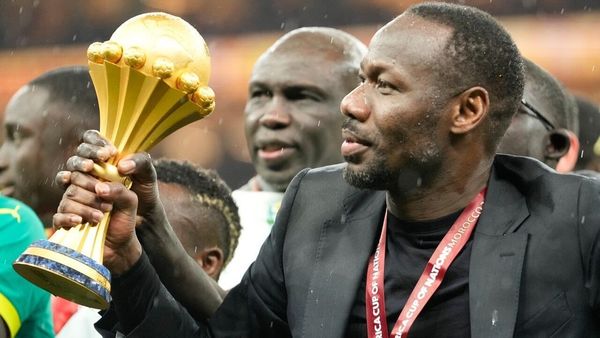
The ICEC report that was published on Tuesday will hopefully come to be seen as a landmark in the development of a more equal game. Reading it, my response was informed by memories of my own path into cricket, my mixed heritage and the position I now find myself in as president of a first-class county and director of cricket at a leading private school.
I have lived in and around Harrow my whole life. My mum is a white woman from East Ham, from a very modest background. My father’s ancestors were from India, but he arrived in England from Guyana in 1960.
In 1978, when I was eight, we moved from Wealdstone to Hatch End, where there happened to be a cricket club and a park round the corner. If we had not made that move it is very unlikely I would have become a cricketer, but that club allowed me to develop a love of the game and progress onwards.
I got a professional contract at the age of 17, went on to play first-class cricket for 25 years and 52 Test matches for my country and I am still working within the game I love.
That is my experience. But the report has received evidence from 4,000 people and a lot of their experiences have been extremely negative. I think about some of the colleagues I played with – Phil DeFreitas, Norman Cowans, Devon Malcolm, Chris Lewis, Wilf Slack, Gladstone Small – who were able to make a living playing cricket in this country and played at international level. We all have so much to be thankful for, but you could argue our achievements were against the odds. Many non-white players of my generation endured unpleasant experiences and it is clear those experiences are being replicated today.
In April, I was honoured to take over as president of Middlesex. The club is based in north London, where there are high numbers of ethnic minorities playing recreational cricket but those communities are underrepresented in the professional game. We are already taking steps to improve that, setting up an equality, diversity and inclusion committee in 2020 and addressing the composition of the board, which now includes four women and four people of colour.
You could argue that asking me to be president was part of that process. A real effort is being made to engage more widely with the communities around us but there is still much to do here and across the country. We need to see not just players but directors of cricket and coaches who reflect the demographics of the area clubs are based in. I do not believe we should be appointing people on the basis of their colour, but I do believe there are enough talented people of colour who could fulfil these roles given the opportunity.

But the game reflects the society that exists around it. I’m not sure the ICEC grasps this when, for example, it calls on the ECB to “undertake an in-depth examination of the class barriers that exist in cricket and develop a game-wide strategy to remove them”.
That would be a wonderful thing but class divisions exist in our society and there is nothing the ECB can do to remove them. But I hope it could, with assistance from an ambitious government, make an effort to regenerate facilities and interest in cricket in urban areas where people really struggle to pursue the game.
Three years ago, I was again honoured to be offered the position of director of cricket at Harrow, one of the country’s great private schools. The place is steeped in history and every day I see a plaque on the wall that lists the names of everyone who has done my job in the past, some of them genuine legends of the game, going back to the late 19th century.
I felt incredibly proud to join that list and that they asked someone with my background felt like a positive. Some might say I am reinforcing elitism by working there but given my experience I felt I could, even if only in a small way, help facilitate the process of changing attitudes and increasing opportunities.
The report makes clear that the over-representation of privately educated people in the England team is an issue, which is unlikely to surprise many in the game. But it feels inevitable when private schools are able to invest in their facilities while those in state schools fall into ruin.
Most private schools are aware they have to do more to justify their charitable status. That means forging closer ties with their local communities and opening up facilities to local schools and clubs. But none of this can, to use an appropriate phrase, level the playing field. To have adequate grounds, employ groundstaff to prepare pitches, have indoor schools and dedicated coaching, travel to away games on coaches and cover the cost of catering and the staffing necessary to organise and oversee teams, all of these things are prohibitively expensive to many schools.
It is no surprise that boys who can practise at school throughout the winter have a competitive advantage over kids who can only play in the summer. But you can’t criticise schools for producing fantastic environments – the challenge is to narrow that gap not by lowering the ceiling, but by raising the floor.







